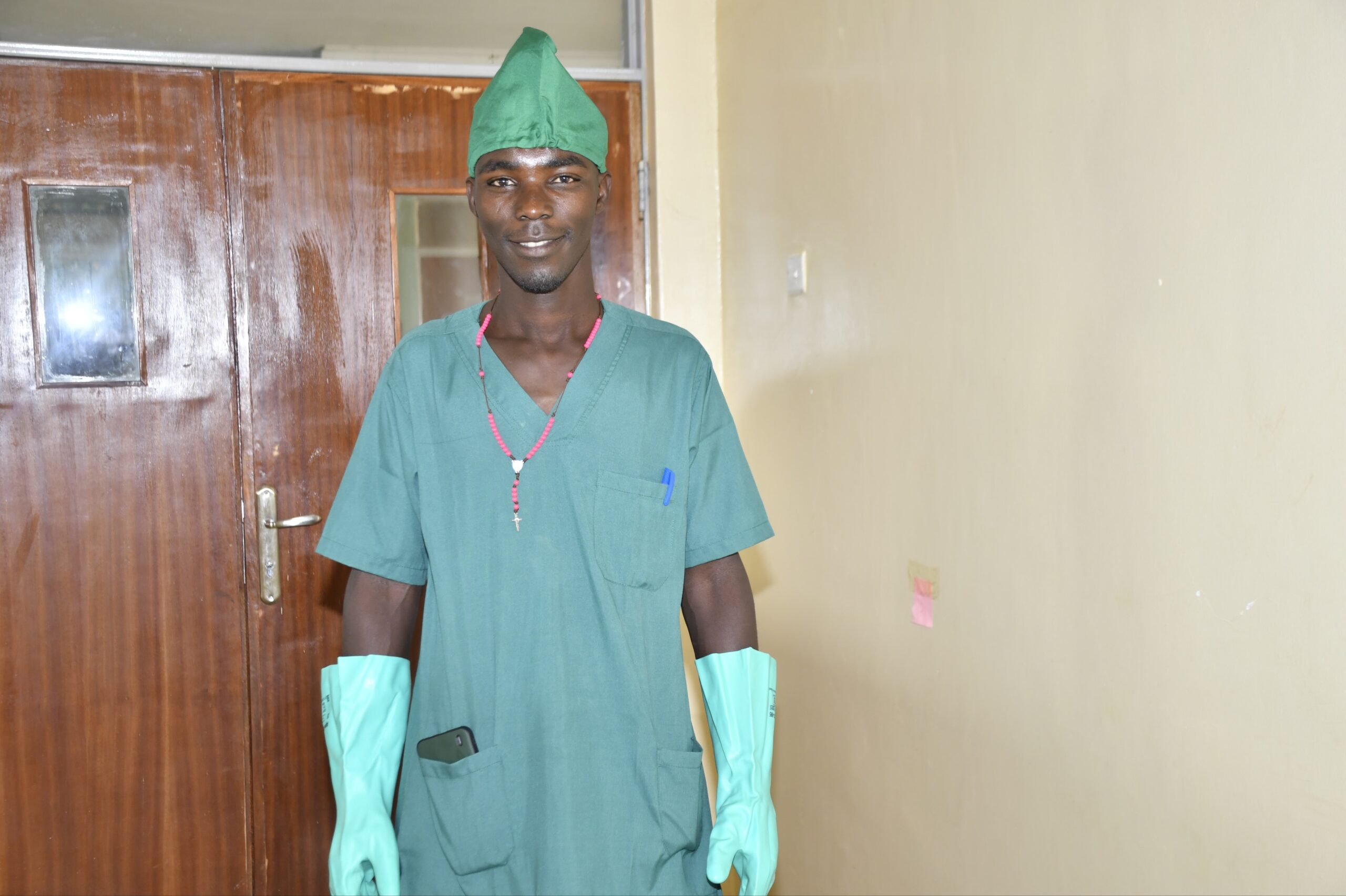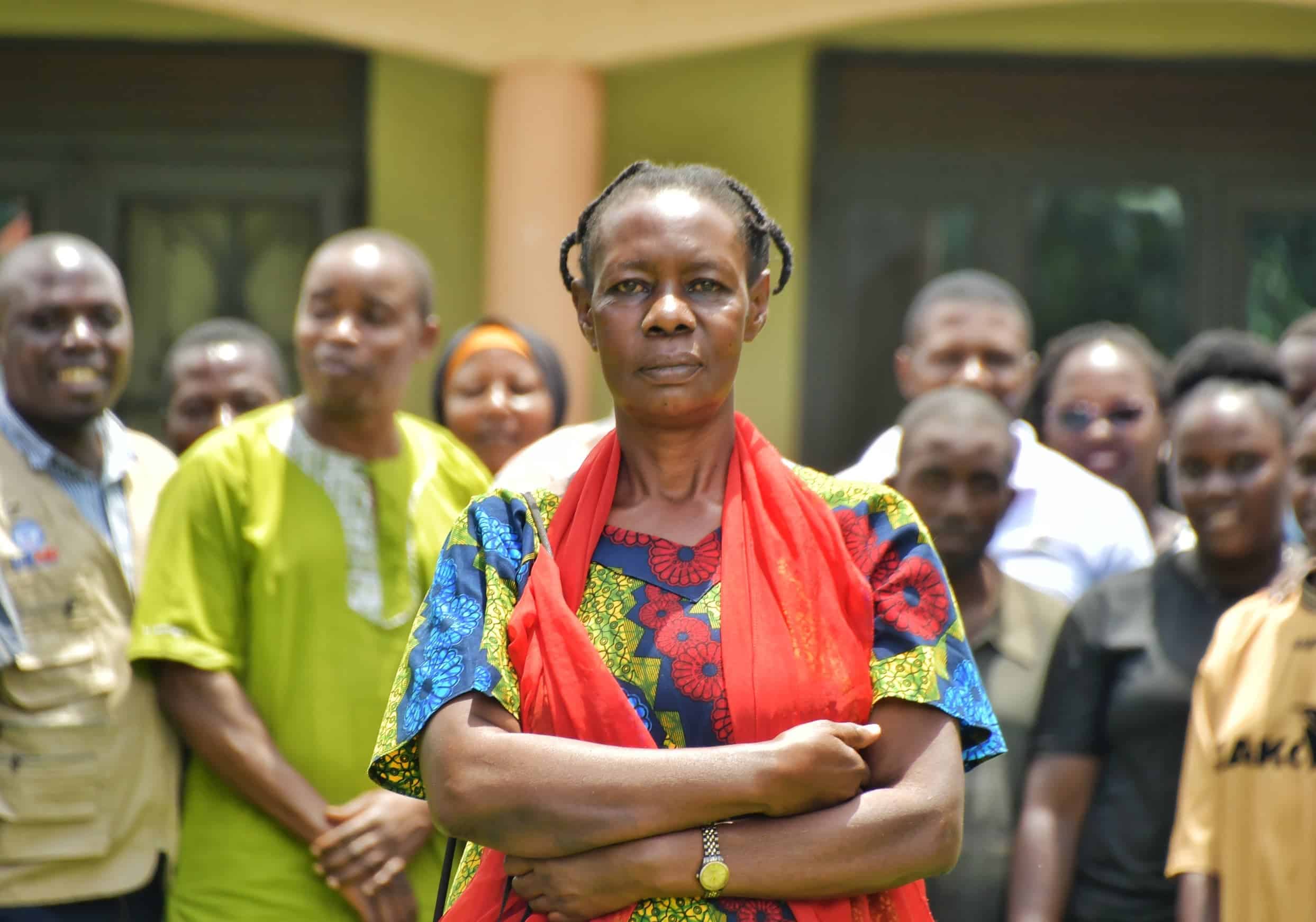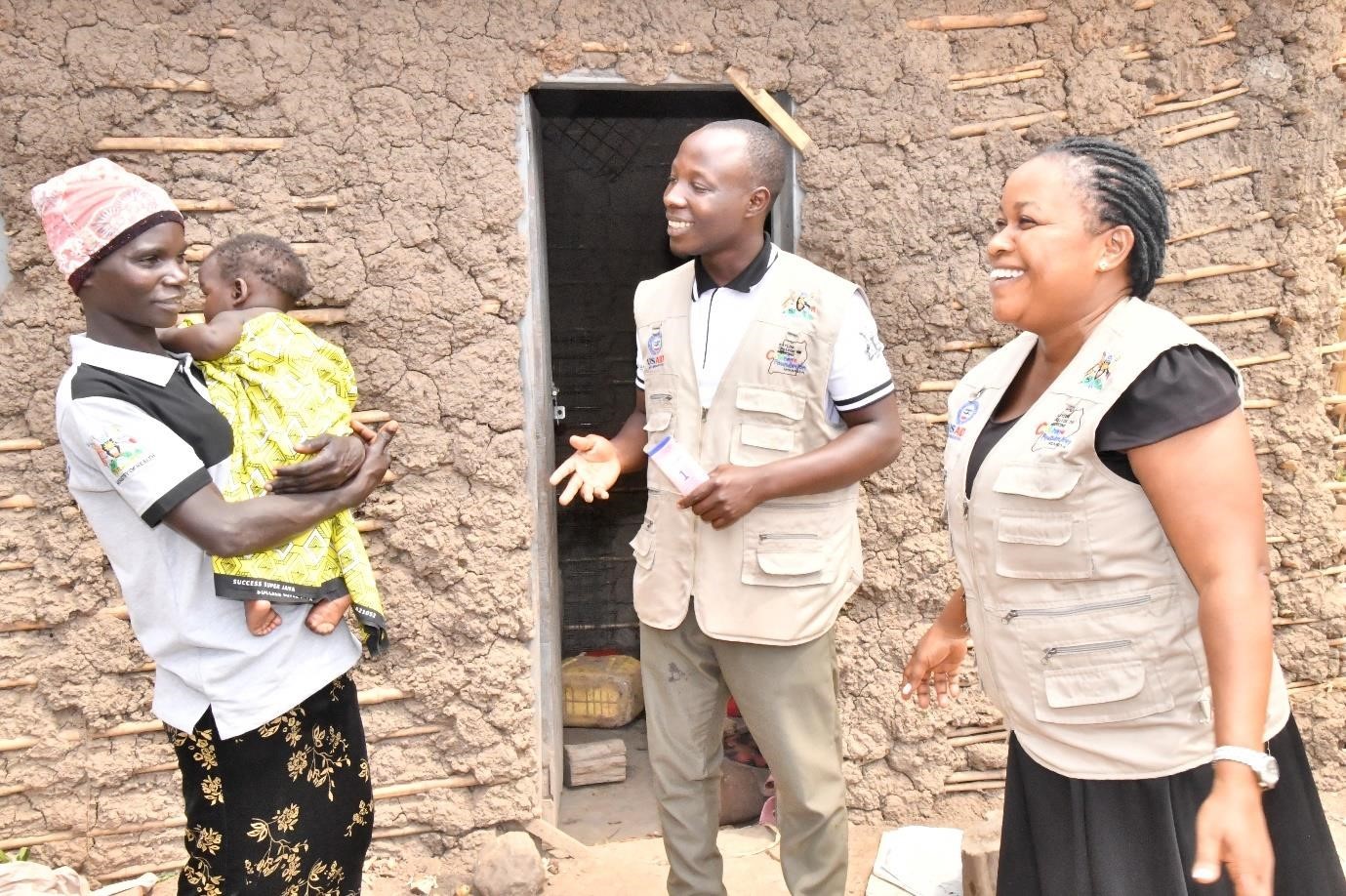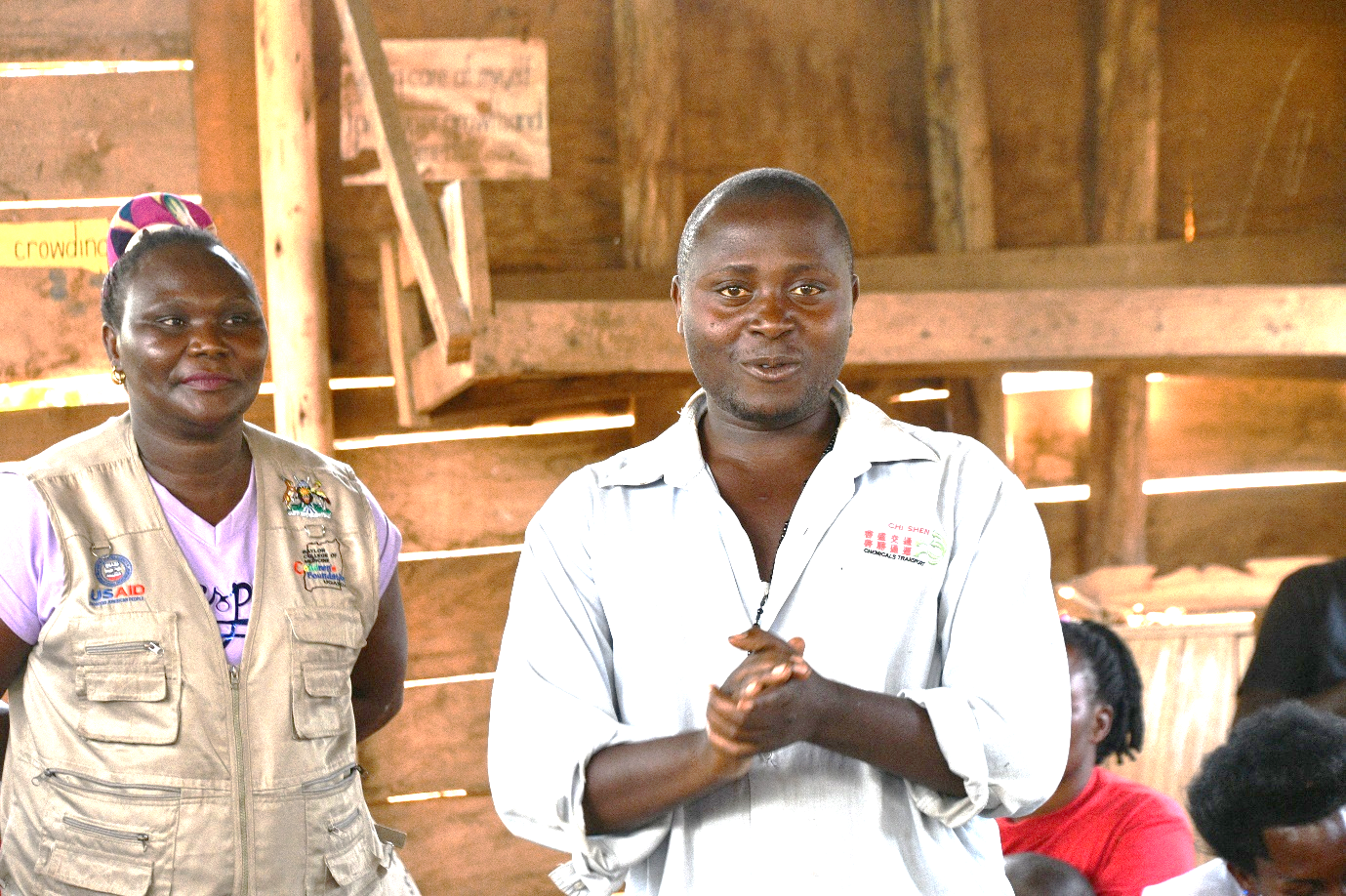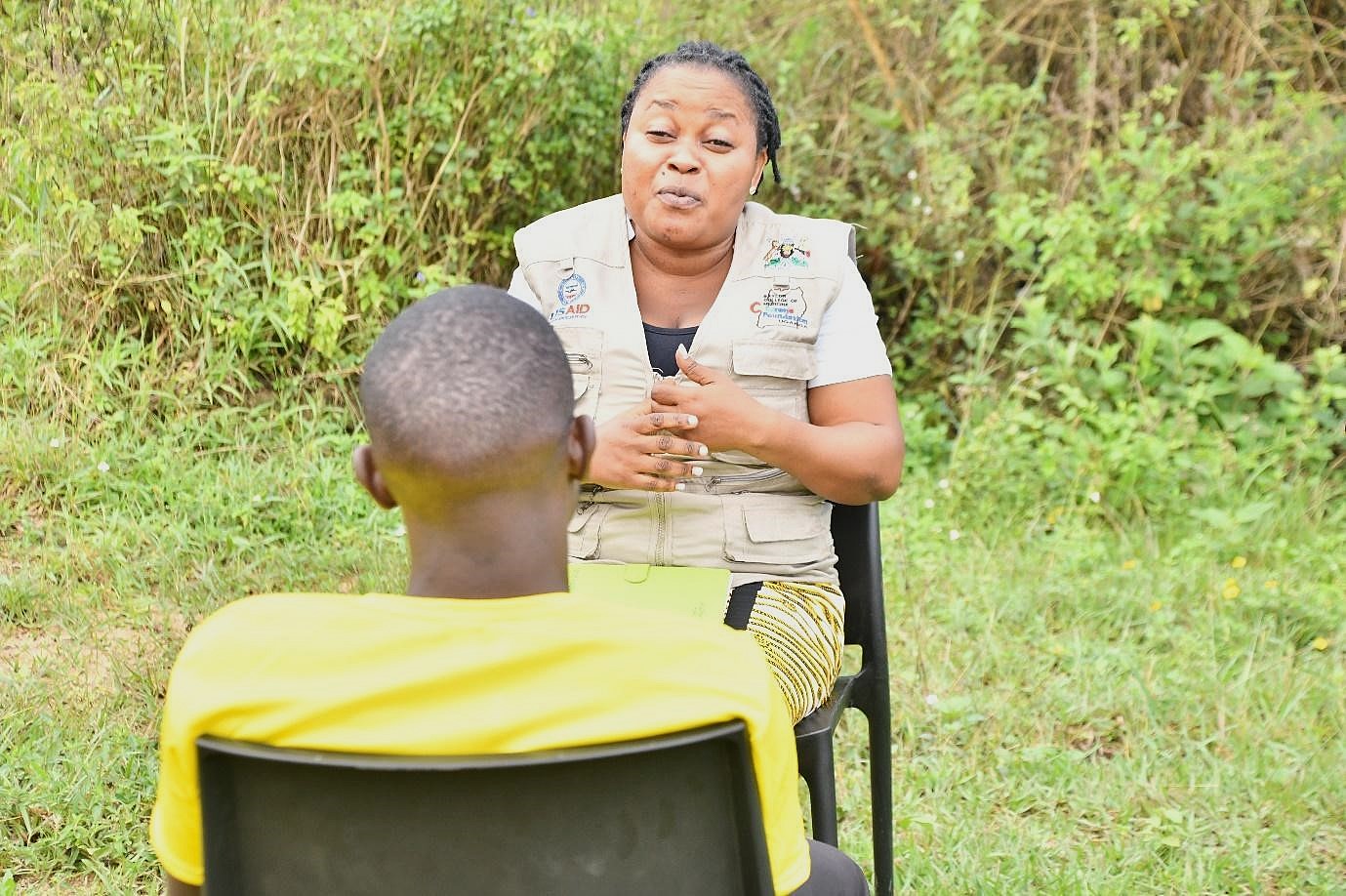Robert Twinamasiko, 30, a father of five children aged 9, 8, 6, 4 and 2 years-old, contracted Ebola after cleaning his ailing friend who began bleeding as he was undergoing treatment at a local clinic in Kikandwa village, Kassanda district.
Facing reality
Seven days after the demise of his friend, Robert began to feel unwell. I started to feel weak all over and lost the urge to eat. As soon as Robert started to vomit, he called a doctor at Mubende Regional Referral Hospital to whom he had been connected since he was an Ebola contact for his friend. The doctor sent an ambulance right away to pick Robert.
When Robert’s blood sample was tested at the hospital, it revealed that he too had Ebola. Robert recalls that he was struck with fear when he saw people dying. “I was so afraid. I was told that I lost consciousness for seven days. When I awoke, there were no more deaths. Thereafter I regained hope to live,” says Robert.
Facing stigma and discrimination from the community
Robert was subsequently discharged from the hospital after being confirmed Ebola-free. Upon reaching his village, he experienced stigma and discrimination from the larger community. “I felt like crying,” reveals Robert. “My friends asked me to stay away from them, which I did not understand because I had been discharged.”
The National Ebola Survivors’ Program
The National Ebola Survivors’ Program, which was established by the Ministry of Health in collaboration with Baylor-Uganda and with funding from the United States Government to address the medical, mental health, and psychosocial effects of the Sudan Ebola virus disease, came to his rescue and provided him with psychological and emotional support. “The community stopped fearing us when they saw the health workers walking with us,” a gesture he believes changed the community’s attitude towards him and 29 other survivors in his village.
Not walking the journey of loss alone
Robert, who is now joyful, talks about how the program has provided him with continuous psychological support to help him deal with the loss of his truck driving job, his motorcycle when he couldn’t pay back the loan, and his wife when she discovered that the Ebola virus was still present in his semen.
Regaining hope to help and encourage others
Robert considers himself fortunate to have been hired as a hygienist at the Kikandwa Ebola Survivors’ Clinic, given his lack of employment. “This job has allowed me to support my family and pay for my children’s tuition.” With this renewed optimism, Robert has also made it his mission to encourage his fellow survivors to continue taking part in the monitoring of the viral persistence in the semen in order to fully eradicate the disease and rebuild their lives. “I keep telling them that one day we shall join other male survivors whose semen has tested negative,” adds Robert. This encouragement is supported by data, since 33 out of 48 males’ semen samples have already tested negative and been discharged from monitoring, giving hope to those still undergoing the process.
